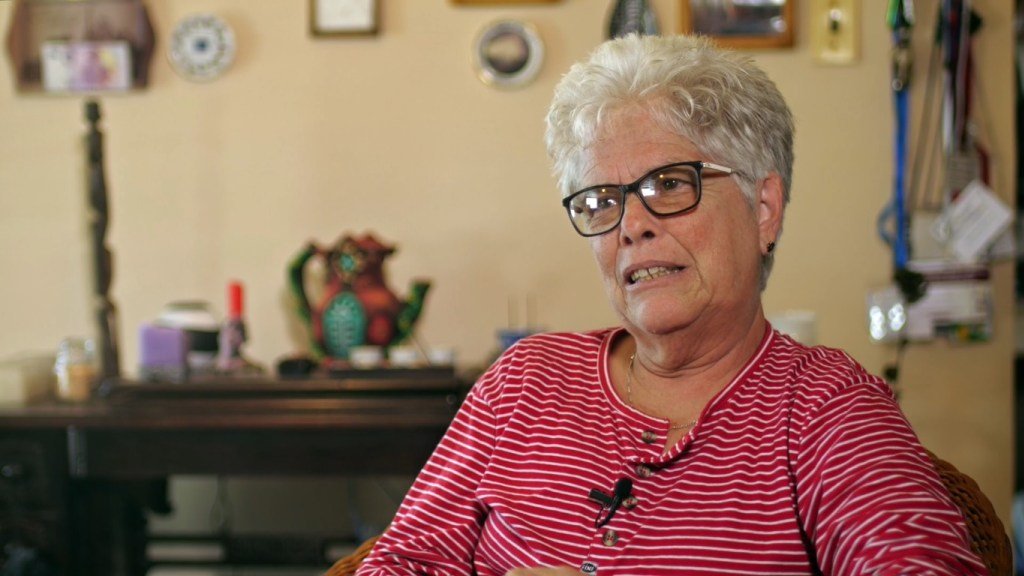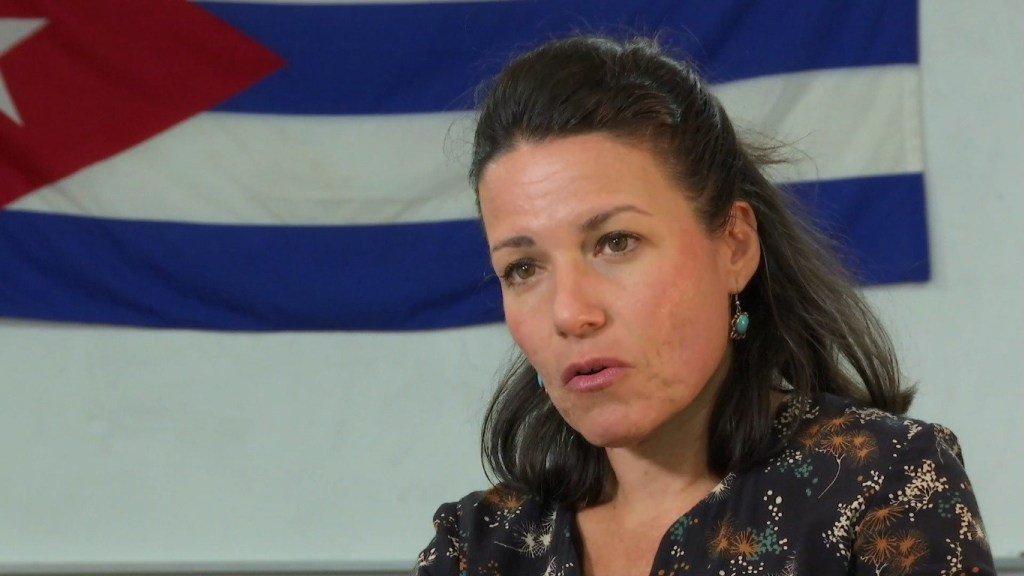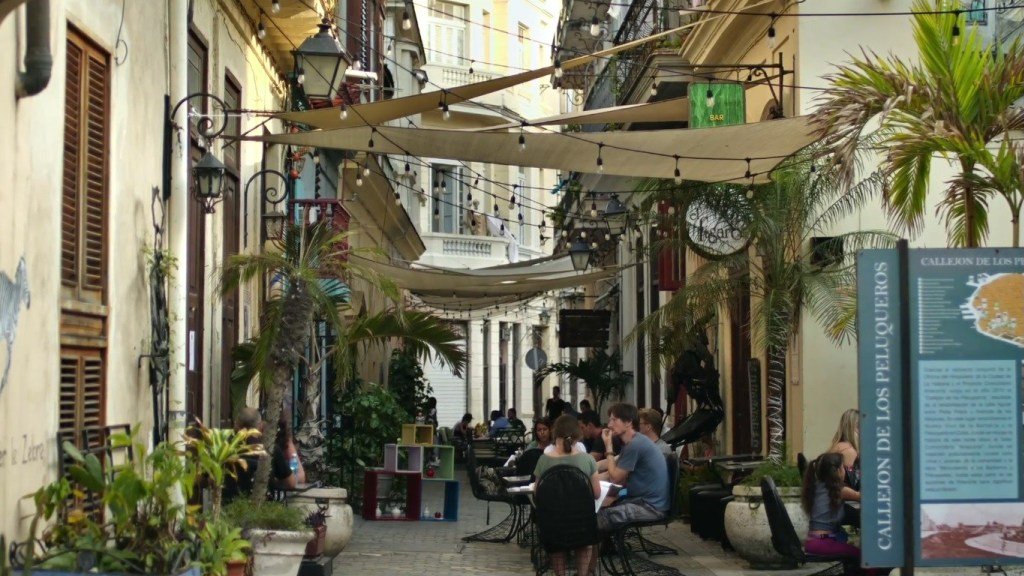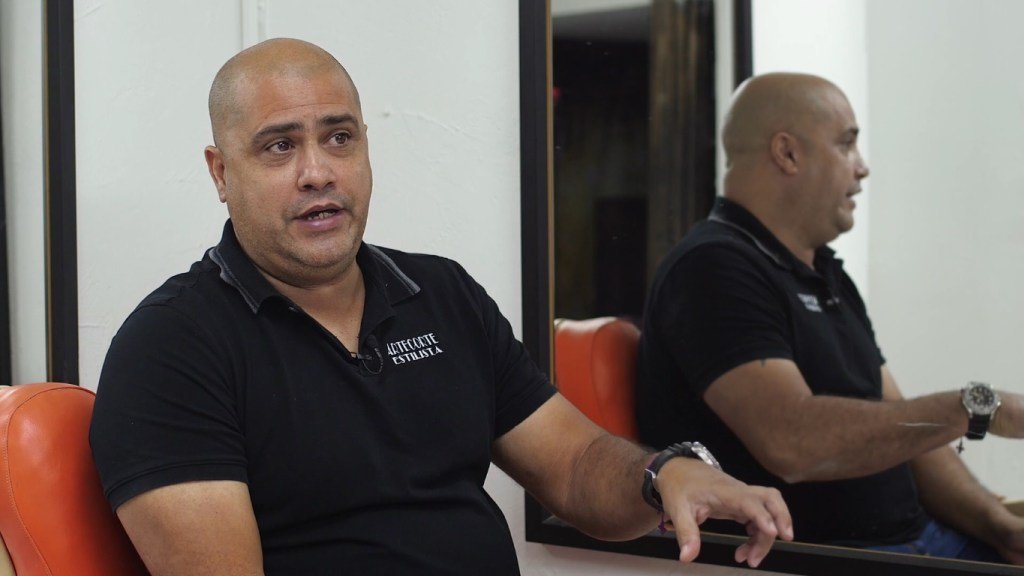Why did I decide to make a documentary about self-employment in Cuba? This topic has been waiting for a long time to be dealt with. It is impossible to deny the influence of the private sector as part of the Cuban economic model and its role in the reconfiguration of society. However, much of the media treatment given to the issue is reduced to reporting about regulations, measures and contraventions.
A BA thesis is like a trip in which all university students are enrolled and my lucky talisman was to have the intellectual generosity of Dr. in Economic Sciences Ileana Díaz. She introduced me to the Entrepreneurship and Business Innovation Network of the University of Havana, a multidisciplinary group dedicated to thoroughly studying the transformation of ownership in Cuba.

Self-employed? Entrepreneur? Businessperson? The first dilemma I came against was the fact that these terms are used interchangeably to refer to this social group.
According to Díaz, a self-employed person is a person who works for himself and does not employ anyone. “But many of them form micro and small businesses with hired workers. The hired worker himself is, in turn, a self-employed worker. That is to say, we have generated a confusion with all the legislation and the focus given to the subject.”
On the other hand, for Dr. in Psychology Daybel Pañellas, “entrepreneur” is still a term that is taboo: “speaking about entrepreneurship today does not seem to be politically correct.”

The self-employed and experts became the focus of this documentary. Por cuenta propia analyzes the economic challenges faced by business owners: insufficient preparation for the management and development of their establishment; the unattractive credit system; the origin of the initial capital source; the absence of a wholesale market; the impact of the new regulations and the fiscal banking account as part of that package of measures.
“There isn’t a single word that means to incentivize, promote, encourage…everything in the new legislation is really aimed at controlling, blocking and creating obstacles,” explains Díaz.
Por cuenta propia, with its making with flaws and totally perfectible, helped me understand the reality of a social group with which we have a daily relationship. A documentary cannot be cold. Getting into people’s lives is precisely what hooks audiences.

When I arrived at the Callejón de los Peluqueros, I didn’t know exactly what I was going to find. I thought I would again come face to face with the cautious and silent story, in which Cuban business owners are already trained. Instead, I met Gilberto Valladares “Papito,” a hairdresser and leader of a community project, who affirms: “I’ve been gaining a place in society, but I still have the cross to bear of being a self-employed person.”
The neighborhood of Santo Ángel is a place where entrepreneurship has flourished and revitalized the area in close association with the community. The stories of these self-employed are the heart of the documentary, because despite the challenges they face, today they develop a sustainable project of social and solidarity economy.

Each shot, each cut, each part of the edition was designed so that this documentary be understood by the self-employed. I wanted to give their problem a wider frame, so they could see their own reality. Later, I realized that you don’t have to be self-employed to understand it. The family is the core of society and there are many who today have a member associated with this sector. Self-employment is a daily phenomenon and let’s say that it made my documentary more open.
The actors of this audiovisual material, rather than having a personal vision of what it means to “update” our economic model, urge building this model by adhering to the compliance of the agreements endorsed in the Guidelines of the economic and social policy. More than legal claims, they call for the legislation not to be reformulated in a way that is different from what was agreed in the 6th Party Congress. “Comply what is endorsed” is the end of the sentence of three experts that make up my sample of interviewees.
There is no prohibited thesis topic. Of course, we must overcome the challenge of flexing our muscles before a race against contagious immobility and know that little is learned easily.









